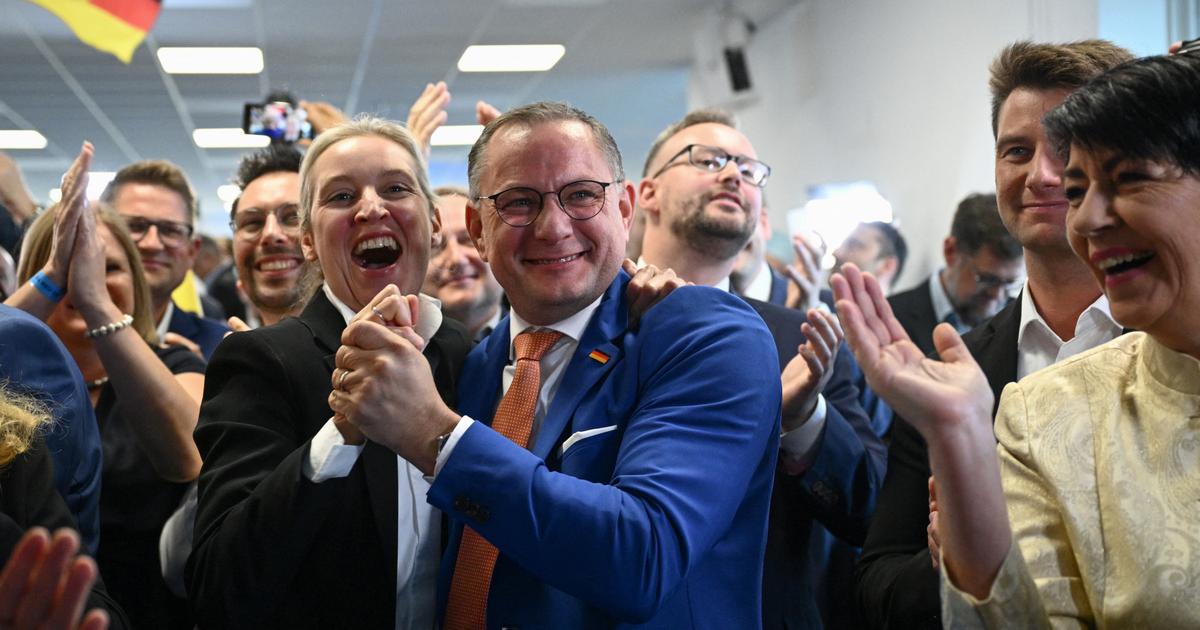Far-Right Gains Surge in European Elections
Europe has witnessed a significant political transformation following the recent European Parliament elections, where far-right parties have made substantial inroads. These parties secured the first position in countries such as France, Italy, and Austria, while also claiming significant seats in Germany and the Netherlands. The political landscape is now marked by heightened uncertainty regarding the future direction of the European Union.
In Germany, the far-right Alternative für Deutschland (AfD) secured 15.9% of the votes in the Bundestag, trailing only the conservatives of the CDU. This noteworthy performance outmatched the ruling coalition, including the SPD of Chancellor Olaf Scholz. The AfD's success is stirring considerable apprehension in a nation sensitive to its historical context, especially given the party's controversial rhetoric linked to racist provocations and nostalgic sentiments for the Third Reich.
France experienced an even more dramatic shift, with the National Rally party, led by Gordan Bardella, achieving 31.5% of the votes. President Emmanuel Macron's Ennahdha Party fell significantly behind with 15.2%, leading to Macron opting to dissolve the National Assembly and call for new legislative elections. This turbulent political climate underscores the growing challenge far-right forces pose to traditional pro-European parties.
While the far-right factions have increased their presence, the established pro-European blocs—the European People's Party (EPP), Socialists, Democrats, and Renew Europe—still collectively hold the majority in the parliament. However, the overall majority has decreased from previous sessions, complicating legislative processes as these far-right parties now hold greater influence capable of obstructing pivotal decisions.
Notably, Italy saw Giorgia Meloni's Brothers of Italy party emerge victorious with no less than 27% of the votes, affirming her position as a dominant force in Italian politics. Similar trends are visible across Austria, Spain, and Finland, each reflecting a rise in far-right support amidst broader socio-economic and geopolitical challenges.
Political and Social Implications in Europe
The gains of the far-right are not confined to legislative seats but also extend to impacting essential political discussions. Issues such as immigration, economic policies, defense strategies against Russia, and climate targets are now subject to more divisive debates. Far-right representatives can voice strong opposition, influencing broader European policy-making, and potentially creating gridlocks within the governing structures.
Despite these gains, far-right influencers in the European Parliament remain fragmented, primarily split between two blocs distinguished by divergent views on relations with Russia and other critical geopolitical matters. This fragmentation, while limiting their direct legislative power, nevertheless signifies a shift in political sentiment across Europe, demanding proactive engagement from pro-European entities to address the evolving landscape.
European Commission President Ursula von der Leyen underscored the need to build a unified front against extremist forces from both ends of the political spectrum, reiterating her commitment to fortifying pro-European values. However, her recent overtures to Meloni have sparked tensions among liberals, socialists, and Greens, indicating the complexities in forming harmonious coalitions to govern effectively.
The European election outcomes highlight crucial strategic divisions and underline an essential political recalibration across the continent. As the political dynamics evolve, the capacity of pro-European coalitions to maintain cohesive and effective governance remains a focal point for navigating the tumultuous future of the EU.
- The ascent of far-right parties in the European Parliament elections is deeply tied to broader socio-economic issues such as immigration, economic instability, and cultural identity crises. These concerns have provided fertile ground for nationalist parties that advocate for stronger border controls, national sovereignty, and anti-immigration policies.
- Moreover, the geopolitical context, including the ongoing war in Ukraine and strategic confrontations with global powers like China and the United States, has further complicated the political landscape. The far-right's stance against supporting Ukraine and their varying degrees of pro-Russian sentiments add layers of complexity to Europe's external relations and defense strategies.
- Public reactions to these far-right gains have been mixed, with significant sectors of European society organizing protests and vocalizing opposition against the rise of nationalist sentiments. Movements like Avaaz have been at the forefront, advocating for a united response to counter the far-right's influence.
- These political shifts are symptomatic of deeper divisions within the European electorate, reflecting dissatisfaction with traditional parties and a yearning for alternative approaches to addressing Europe's multifaceted challenges. Balancing the need for reform and the preservation of the EU's foundational principles marks the ongoing political debate.






